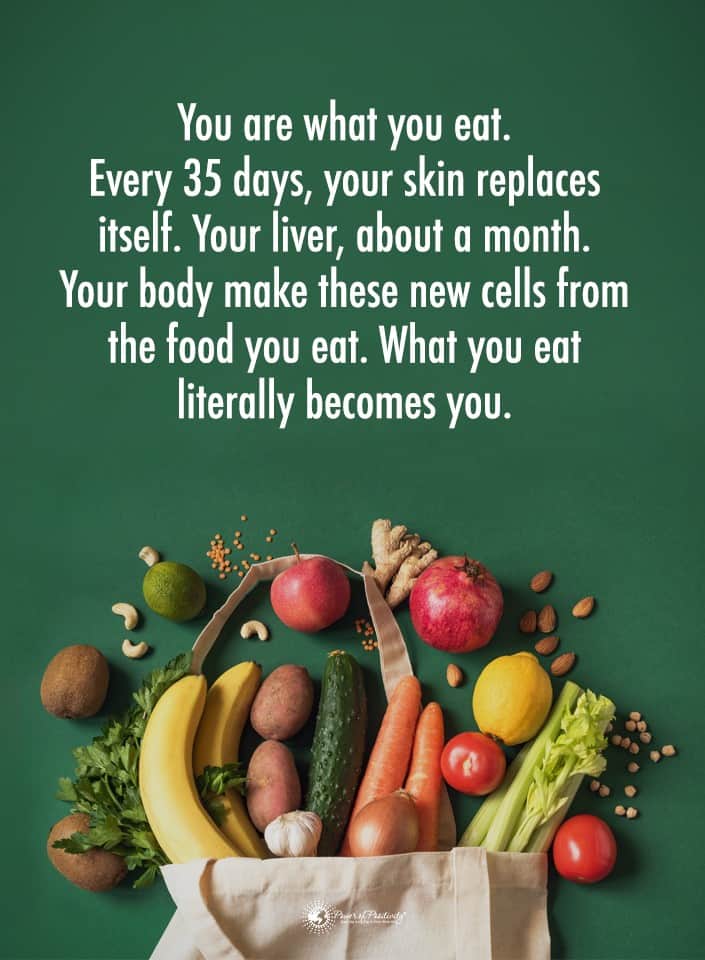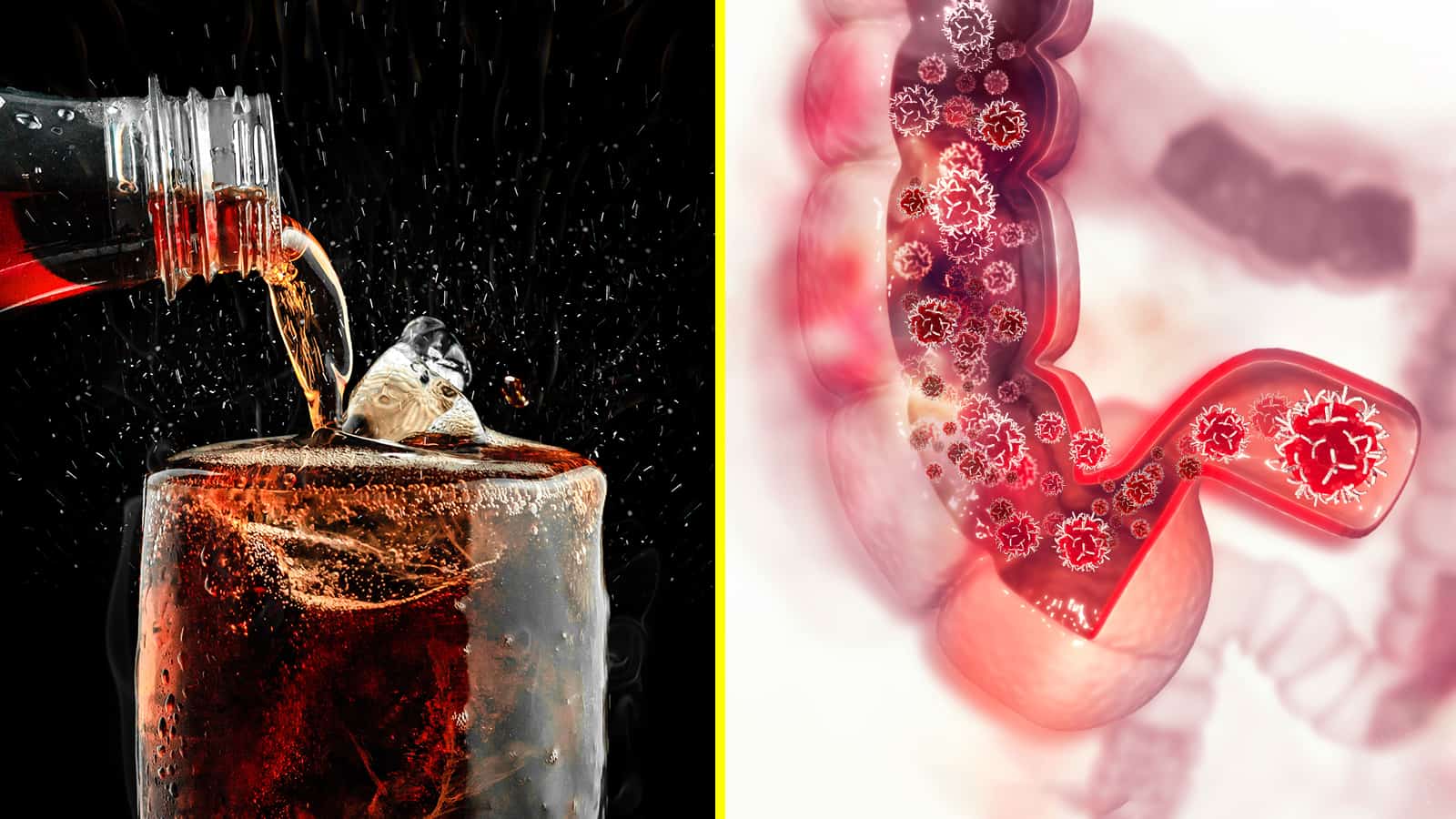In a new study, researchers wanted to understand better why colorectal cancer diagnoses are on the rise. In recent years, doctors have noticed a troubling increase in this type of cancer, particularly in people under 50. A new study led by Washington University School of Medicine in St. Louis seems to have pinpointed the culprit.
Researchers discovered a link between sugary beverages and an increased risk of developing colorectal cancer in women under age 50. The research shows that a diet high in sugary drinks during adolescence (ages 13-18) and adulthood greatly increases the risk. The study adds to the mounting evidence showing the health risks of sugary beverages. Hopefully, the research published online on May 6 in the journal Gut will encourage people to consume fewer sweetened drinks.
What the researchers say about the connection between colorectal cancer and soda
 “Colorectal cancer in younger adults remains relatively rare, but the fact that the rates have been increasing over the past three decades — and we don’t understand why — is a major public health concern and a priority in cancer prevention,” said senior author Yin Cao, ScD, an associate professor of surgery and medicine in the Division of Public Health Sciences at Washington University.
“Colorectal cancer in younger adults remains relatively rare, but the fact that the rates have been increasing over the past three decades — and we don’t understand why — is a major public health concern and a priority in cancer prevention,” said senior author Yin Cao, ScD, an associate professor of surgery and medicine in the Division of Public Health Sciences at Washington University.
“Due to the increase in colorectal cancer at younger ages, the average age of colorectal cancer diagnosis has gone down from 72 to 66 years. These cancers are more advanced at diagnosis and have different characteristics compared with cancers from older populations.
“Our lab is funded by the National Cancer Institute (NCI) and the National Comprehensive Cancer Network to identify risk factors, the molecular landscapes, and precision screening strategies for these cancers so that they can be detected earlier and even prevented,” said Cao, who also holds a master’s degree in public health. “In past work, we have shown that poor diet quality was associated with increased risk of early-onset colorectal cancer precursors, but we have not previously examined specific nutrients or foods.”
Study showing sugary drinks increase colorectal cancer diagnoses in women
Researchers compared the cancer risk of women who drank varying amounts of sugary drinks. They analyzed data from women who drank less than one 8-ounce serving of sugary beverages per week. Then, the team compared this data to women who drank two or more servings per day.
The second group of women had just over twice the risk of developing early-onset colorectal cancer. This means the women received the diagnosis before age 50. The researchers found that each 8-ounce serving a day increased colorectal cancer risk by 16%. The risk doubled from ages 13-18, with each daily serving increasing the risk of early-onset colorectal cancer by 32%.
Studies have previously found a link between sugary beverages and metabolic diseases, such as type 2 diabetes and obesity, even in children. However, not much research has been done on the association between sweetened drinks and colorectal cancer in young people. Adolescents and young adults ages 20 to 34 consume the most sugary beverages of any age group. Because of an increasing incidence of colorectal cancer in women under 50, researchers wanted to understand the possible connection better.
For the study, researchers analyzed data from the Nurses’ Health Study II. This large population study logged health information for nearly 116,500 female nurses from 1991 to 2015. Every four years, participants took questionnaires that asked about their diet, including questions regarding the types and amounts of beverages consumed. Among the participants, over 41,000 also had to answer questions about their beverage habits during adolescence.
Out of the nearly 116,500 participants, researchers discovered 109 diagnoses of early-onset colorectal cancer.
Sugar links to many health problems, even in younger adults.
“Despite the small number of cases, there is still a strong signal to suggest that sugar intake, especially in early life, is playing a role down the road in increasing adulthood colorectal cancer risk before age 50,” said Cao, also a research member of Siteman Cancer Center. “This study, combined with our past work linking obesity and metabolic conditions to a higher risk of early-onset colorectal cancer, suggests that metabolic problems, such as insulin resistance, may play an important role in the development of this cancer in younger adults.”
Because of the increasing colorectal cancer diagnoses, the American Cancer Society recently changed its guidelines for colonoscopy screenings. It lowered the recommended age for a first screening colonoscopy to 45, down from the previously recommended age of fifty. However, those with other risk factors, such as a family history of colorectal cancer, should have a screening even earlier.
While the study shed light on the risks of sugary beverages, there was one caveat to the research. It only included female nurses, most of whom were white; therefore, additional studies are necessary. The team wants to duplicate the study with people of other races, ethnicities, and genders.
The research also showed that you seem to lower colorectal cancer risk if you choose healthier beverages, such as milk and coffee. Of course, the observational study can’t verify with 100% certainty whether sugary drinks cause colorectal cancer. It also can’t prove that drinking milk or coffee protects against this type of cancer. However, researchers say that milk and coffee clearly provide more health benefits if you have a choice.
Cao said:
“Given this data, we recommend that people avoid sugar-sweetened beverages and instead choose drinks like milk and coffee without sweeteners.”
Co-authors of the study include Ebunoluwa Otegbeye, MD, a general surgery resident at Washington University working in the Cao lab. Collaborators include researchers at the Harvard T.H. Chan School of Public Health and Harvard Medical School.
 Final thoughts about the study showing sugary drinks increase colorectal cancer risks in women.
Final thoughts about the study showing sugary drinks increase colorectal cancer risks in women.
Over the past three decades, researchers have noticed an alarming increase in early-onset colorectal cancer in women. A study by researchers from Washington University discovered a link between sugary beverages and this type of cancer. They found that drinking sugar-sweetened drinks doubled the risk of developing colorectal cancer in women under 50.
The team suggests replacing sugary drinks with milk and coffee, for example, which could have a protective effect. It’s clear that heavy sugar consumption causes health problems, but luckily, many sugar replacements to choose from today.


















